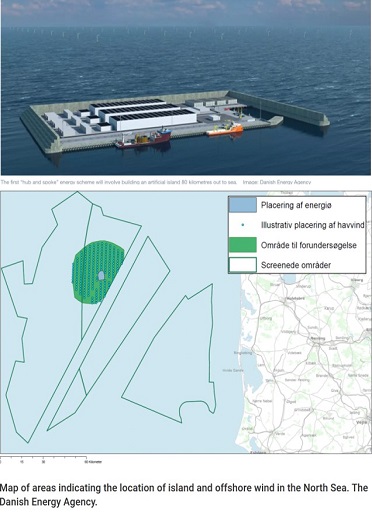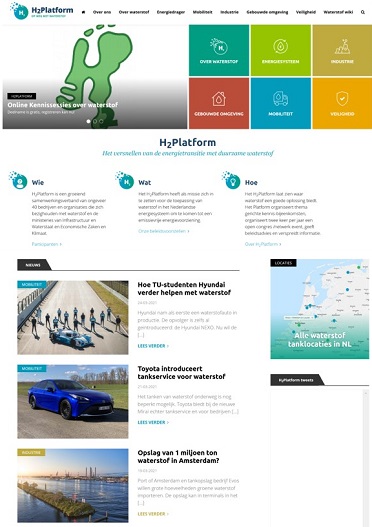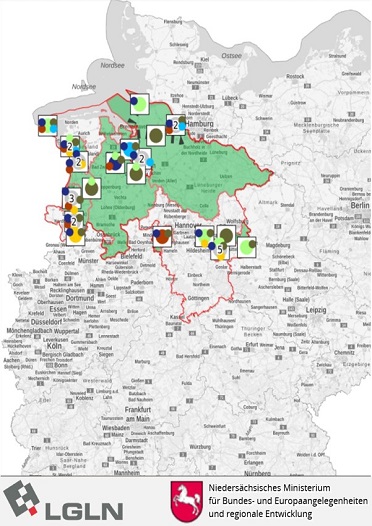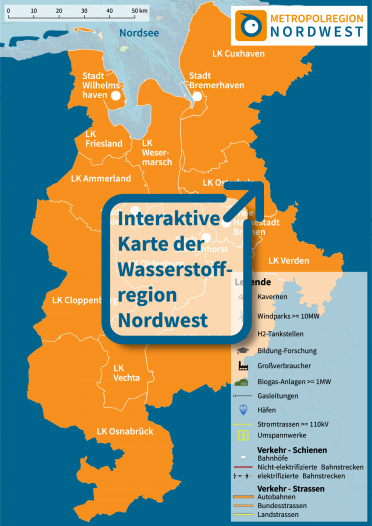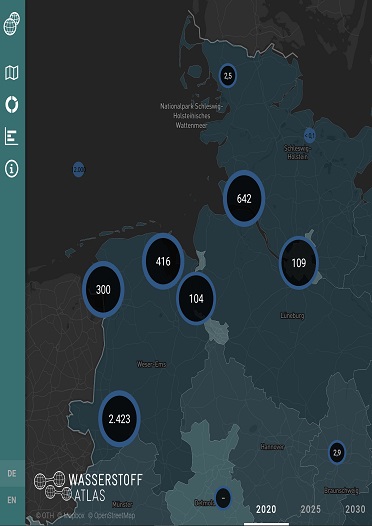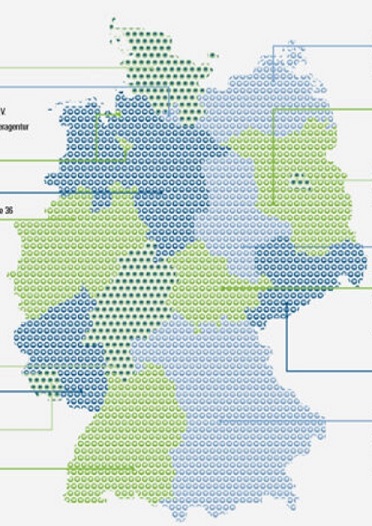Energy Transition
in the Wadden Sea Region
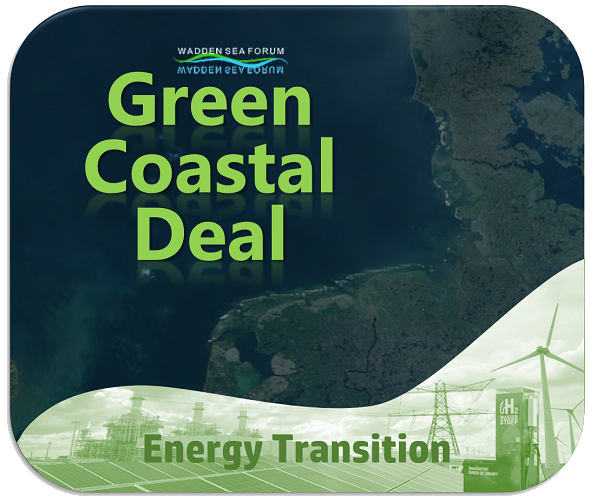
Background
There is a range of several new developments in the Wadden Sea Region with regard to change from fossil fuel to cleaner and renewable energy carriers. In the past, a lot of offshore wind parks have been installed which contribute to this change and this also will be continued in the future. Furthermore, producing, transporting and using hydrogen as a clean energy carrier for industrial and transport sectors is under investigation and implementation. All these developments in the energy sector will have (spatial) implications for the coastal zone, especially for the World Heritage site Wadden Sea. In order to exchange up-to-date information on current and future activities, the WSF offers to serve as a neutral and open discussion and exchange platform on energy transition in the Wadden Sea Region.
The recent developments in global energy supply chains made the change to cleaner and renewable energy carriers even more indispensable. The WSF wants to offer its organisation and existing negotiation and deliberation units to support a fruitful and trustful collaboration in order to successfully develop and implement respective solution options.
Activities at WSF
WSF stakeholder information and discussions are ongoing ...
Energy Transition at WSF-39 (March 2021)
In order to exchange up-to-date information on current and future activities, the WSF organised a first session on energy transition in the Wadden Sea Region.
In the first part of the session, WSF members presented their ongoing activities (see below).
Following the presentations, the participants discussed the topic of energy transition and especially: What role could the WSF play in this context? Feedback from audience were:
- Initiate and facilitate discussions on this topic
- Bringing different companies together with a variety of stakeholder groups from the Wadden Sea Region
- Enable a strategic approach linked to different topics in order to start a discussion, e.g. on what is necessary until 2040 or 2050?
- The installation of RRT could be helpful to discuss on both levels on regional and trilateral about the requirements, needs and demands
New Energy Coalition
The New Energy Coalition (Miralda van Schot) presented the activities conducted in the northern part of the Netherlands
Entec GmbH
The company Entec GmbH (Jochen Kaufholt) working for the WSF member Wintershall Dea presented the development of a hybrid engine for the support vessel propulsion to the platform Mittelplate in the Wadden Sea
TenneT & Amprion
Member of staff from TenneT and Amprion (Simo Taptue and Felix Beierlein) informed about the current activities on connecting offshore wind parks to the main land
Hydrogen projects
The University of Oldenburg (Ulli Scheele) and New Energy Coalition (Ingrid Klinge) presented an overview on different hydrogen project in the northern part of Netherlands as well as the northwestern part of Lower Saxony
Study energy transition on Wadden Sea islands
Florette Rijman, student from the University of Wageningen, presented first results of her study on the energy transition on Wadden Sea islands. She investigated the status and developments with regard to energy transition on the Wadden Sea islands of Texel (The Netherlands) and Mandø (Denmark)
Study energy transition in Wadden Sea harbours
Zakaria Mohamed, student from the University of Groningen, informed about the aims and scope of his study on the role of Wadden Sea harbours in context of the topic of energy transition
Hydrogen Strategy
for the Northwest Metropolitan Region (Bremen/Oldenburg)
The WSF was involved in the development of the hydrogen strategy for the Metropolitan Region Northwest (Bremen/Oldenburg).
Reducing CO2 emissions to limit global warming and protect the environment is a central concern of the Northwest Metropolitan Region. It is the responsibility of all of us to take decisive action against climate change and to continue to shape our regions in a sustainable and forward-looking way. The overriding premise of the new 2022-2025 Framework for Action will therefore be climate neutrality as an overarching goal, to which all other thematic areas will consequently also be committed. The Metropolitan Region wants to make the entire region climate-neutral by working together with politics, business, science, administration and society to advance the implementation of a sustainable hydrogen cycle economy.
A cross-sectoral reduction of greenhouse gases and thus the achievement of climate neutrality by 2045 as a national goal is only possible if fossil energy sources are replaced by a sustainable alternative. In this context, green hydrogen and its derivatives are seen as a building block for a solution. For hydrogen may be the lightest of all elements, but in terms of its potential applications it is a real important one: hydrogen can store energy and thus offers a conservation option for solar and wind energy. But it can also be used as an alternative power supply in the mobility sector, replace fossil fuels in industry or be converted into synthetic natural gas and transport the energy directly to consumers through the existing gas grid.
In the Northwest part of Lower Saxony it exists the ideal infrastructural and economic prerequisites for the production, storage & storage as well as transport of hydrogen.
The WSF was involved in the development of the hydrogen strategy for the Metropolitan Region Northwest (Bremen/Oldenburg).
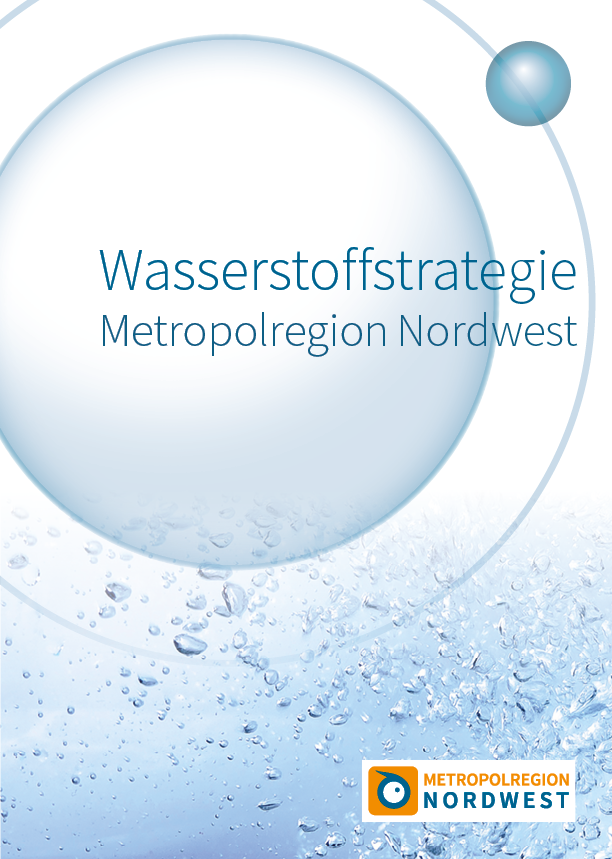
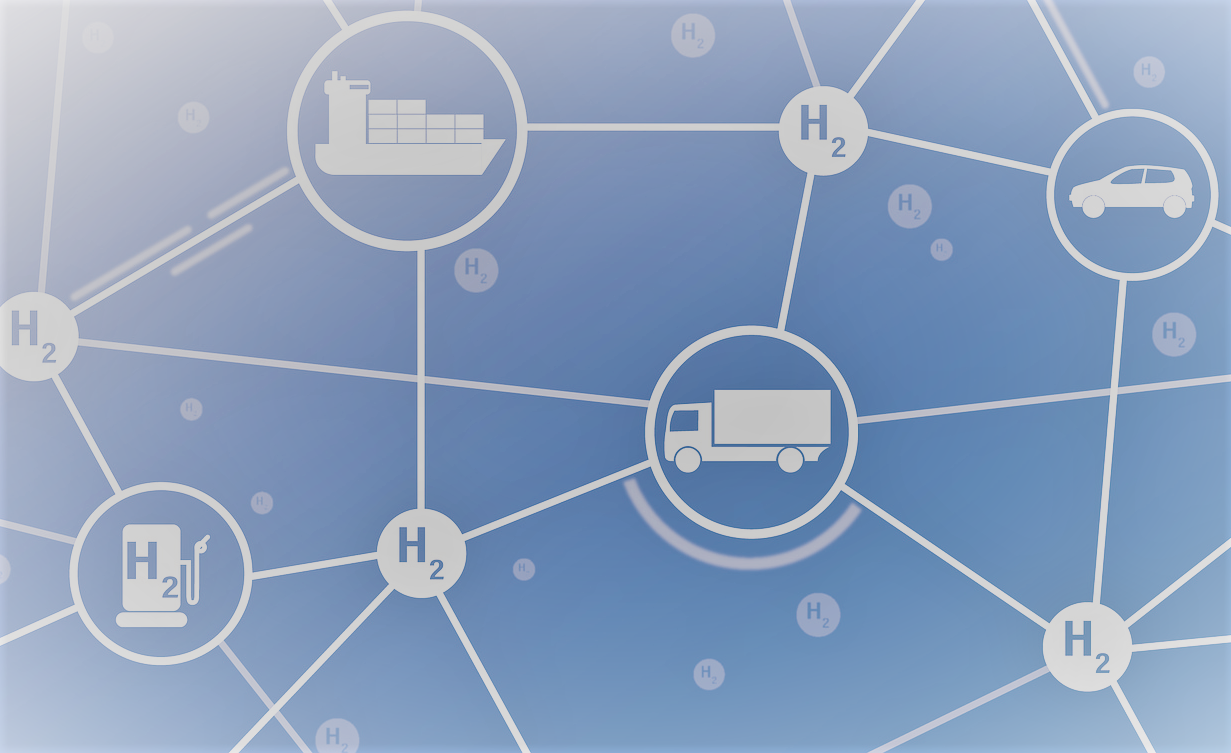
Hydrogen Activities
in Northwestern part of Lower Saxony (January 2022)
The WSF and the S4F (Scientist for Future branch Wilhelmshaven/Friesland) invited to an online webinar on activities with regard to Hydrogen on 13 January 2022.
Taking the participation in the development of the hydrogen strategy for the Northwest Metropolitan Region into account and the activities in the city of Wilhelmshaven, the WSF decided to invite to an online webinar on Activities with regard to Hydrogen at 13 January 2022.
More than 20 participants got a short introduction to abovementioned aims and goals of the hydrogen strategy for the Northwest Metropolitan Region by Ms Nicola Illing (Managing Director). Afterwards, Dr Anna Ernst from Regional Management Department of the city Wilhelmshaven informed about the recent and future activities in and around the city of Wilhelmshaven with regard to hydrogen.
The WSF together with the S4F (Scientist for Future) branch Wilhelmshaven/Friesland invited to this webinar.
Some Trilateral Hydrogen Projects
CO2 Reduction
 Climate change and adaptation measures are global topical issues. The global warming is partly based on rising concentrations of heat-trapping greenhouse gases in the atmosphere caused by human activities. Major reductions in these emissions of greenhouse gases, particularly CO2, are needed to prevent global warming from reaching dangerous levels. The EU is committed to reducing its greenhouse gas emissions by at least 20% from 1990 levels until 2020, and by 30% if a satisfactory international agreement is reached. Also the Trilateral Wadden Sea Cooperation is aware of taking actions to reduce CO2 emissions. The environmental ministers of Denmark, Germany and The Netherlands agreed on the Sylt conference in March 2010 to develop the Wadden Sea Region into a CO2 neutral region until 2030 or earlier. The Wadden Sea Forum with its stakeholders is dealing with this issue and is currently discussing trends and developments till 2030, responsibilities of acting as well as management tools like avoidance strategies, CCS and emission trading.
Climate change and adaptation measures are global topical issues. The global warming is partly based on rising concentrations of heat-trapping greenhouse gases in the atmosphere caused by human activities. Major reductions in these emissions of greenhouse gases, particularly CO2, are needed to prevent global warming from reaching dangerous levels. The EU is committed to reducing its greenhouse gas emissions by at least 20% from 1990 levels until 2020, and by 30% if a satisfactory international agreement is reached. Also the Trilateral Wadden Sea Cooperation is aware of taking actions to reduce CO2 emissions. The environmental ministers of Denmark, Germany and The Netherlands agreed on the Sylt conference in March 2010 to develop the Wadden Sea Region into a CO2 neutral region until 2030 or earlier. The Wadden Sea Forum with its stakeholders is dealing with this issue and is currently discussing trends and developments till 2030, responsibilities of acting as well as management tools like avoidance strategies, CCS and emission trading.
The WSF is going to compile relevant information and documents to inform about policies, techniques and management developments. This will serve as a basis for the further work in the WSF plenary and the responsible working group. The compiled information makes no claims of being complete and focuses on the needs of the WSF.
Inventory report for a climate-friendly Wadden Sea Region
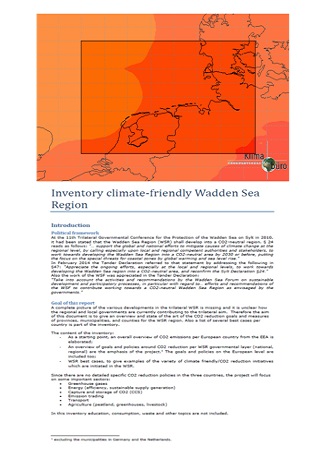
At the 11th Trilateral Governmental Conference for the Protection of the Wadden Sea on Sylt in 2010, it had been stated that the Wadden Sea Region (WSR) shall develop into a CO2-neutral region. This was reinforced at the conference in 2014 in Tønder.
To analyze the progress with regard to this aim, the Wadden Sea Board in cooperation with the WSF agreed to elaborate an inventory of CO2 reduction policies, measures and best practices. This was done on different levels, to get a complete picture, encompassing the European and national levels as well as the Wadden Sea Region with its provinces, counties and municipalities. On the local level only best practice examples have been compiled. The full report is now available for download.
Inventory report for a climate-friendly Wadden Sea Region
Projekt "CO2 neutral Waddensea Region"
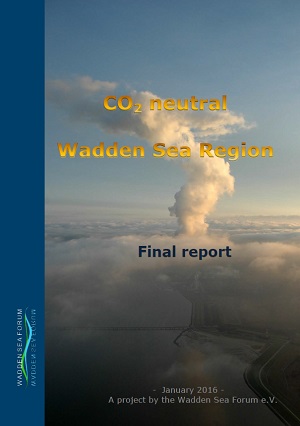
To develop the Wadden Sea region by 2030 into a CO2-neutral region is an ambitious goal, which needs the support of the entire region with their industry associations, environmental and conservation organizations and social institutions as well as the local and regional politicians.
In order to reach the aim of the project, elaborating recommendations and advice on measures for the development of climate-friendly Wadden Sea Region (WSR), regional characteristics and development options had to be analyzed first.
The project concretely followed the principles of Integrated Coastal Zone Management. It was aimed at a comprehensive perspective that includes the ecosystem approach and economic activities with impact on the Wadden Sea Region by elaborating measures, which contribute to the development of climate-friendly WSR, including the preservation of natural and cultural landscape.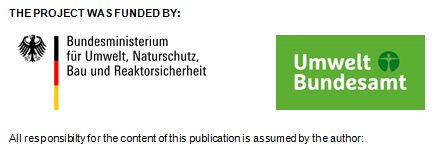 The conservation of the natural dynamics of the Wadden Sea as well as the conservation of biodiversity behind the dikes were and still are important aspects in the objectives of climate change adaptation. Furthermore, the project provides a basis for detailed analyses and concepts at the transnational level.
The conservation of the natural dynamics of the Wadden Sea as well as the conservation of biodiversity behind the dikes were and still are important aspects in the objectives of climate change adaptation. Furthermore, the project provides a basis for detailed analyses and concepts at the transnational level.



